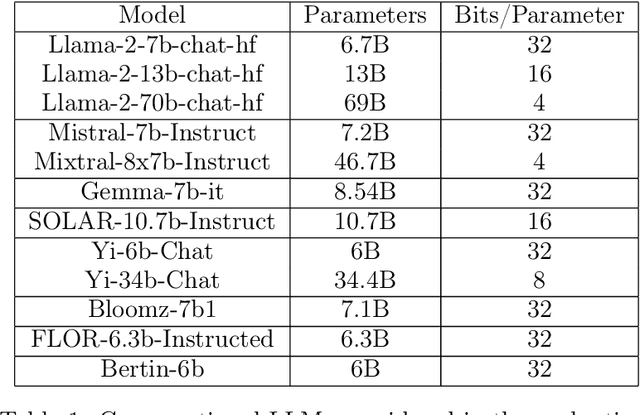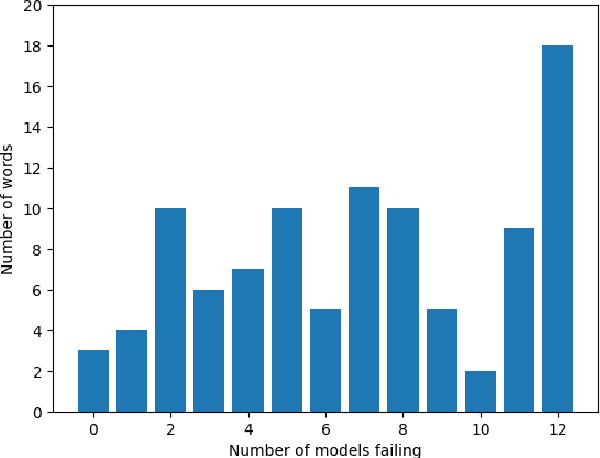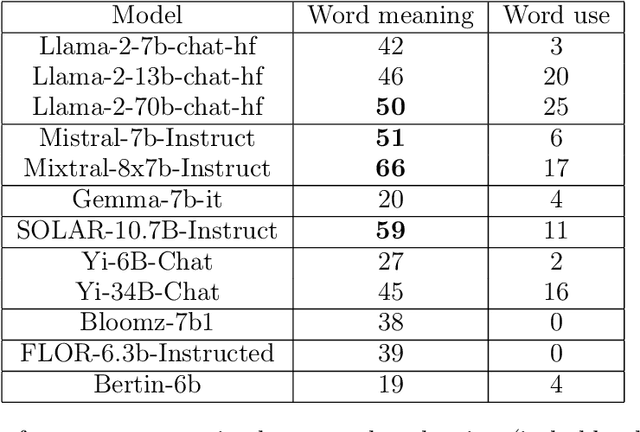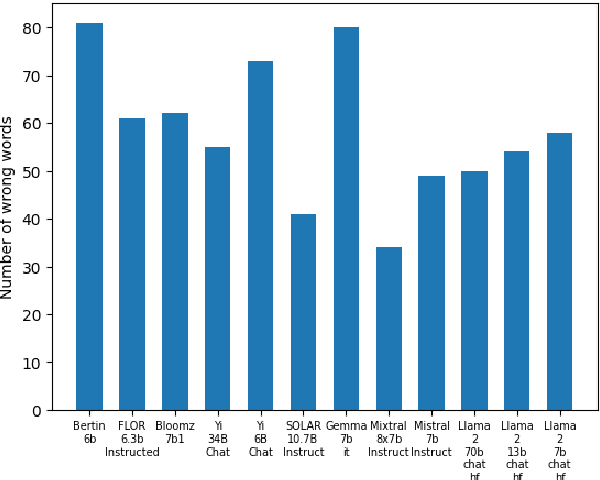Raquel Ferrando
Why Do Large Language Models (LLMs) Struggle to Count Letters?
Dec 19, 2024Abstract:Large Language Models (LLMs) have achieved unprecedented performance on many complex tasks, being able, for example, to answer questions on almost any topic. However, they struggle with other simple tasks, such as counting the occurrences of letters in a word, as illustrated by the inability of many LLMs to count the number of "r" letters in "strawberry". Several works have studied this problem and linked it to the tokenization used by LLMs, to the intrinsic limitations of the attention mechanism, or to the lack of character-level training data. In this paper, we conduct an experimental study to evaluate the relations between the LLM errors when counting letters with 1) the frequency of the word and its components in the training dataset and 2) the complexity of the counting operation. We present a comprehensive analysis of the errors of LLMs when counting letter occurrences by evaluating a representative group of models over a large number of words. The results show a number of consistent trends in the models evaluated: 1) models are capable of recognizing the letters but not counting them; 2) the frequency of the word and tokens in the word does not have a significant impact on the LLM errors; 3) there is a positive correlation of letter frequency with errors, more frequent letters tend to have more counting errors, 4) the errors show a strong correlation with the number of letters or tokens in a word and 5) the strongest correlation occurs with the number of letters with counts larger than one, with most models being unable to correctly count words in which letters appear more than twice.
Open Source Conversational LLMs do not know most Spanish words
Mar 21, 2024



Abstract:The growing interest in Large Language Models (LLMs) and in particular in conversational models with which users can interact has led to the development of a large number of open-source chat LLMs. These models are evaluated on a wide range of benchmarks to assess their capabilities in answering questions or solving problems on almost any possible topic or to test their ability to reason or interpret texts. Instead, the evaluation of the knowledge that these models have of the languages has received much less attention. For example, the words that they can recognize and use in different languages. In this paper, we evaluate the knowledge that open-source chat LLMs have of Spanish words by testing a sample of words in a reference dictionary. The results show that open-source chat LLMs produce incorrect meanings for an important fraction of the words and are not able to use most of the words correctly to write sentences with context. These results show how Spanish is left behind in the open-source LLM race and highlight the need to push for linguistic fairness in conversational LLMs ensuring that they provide similar performance across languages.
 Add to Chrome
Add to Chrome Add to Firefox
Add to Firefox Add to Edge
Add to Edge